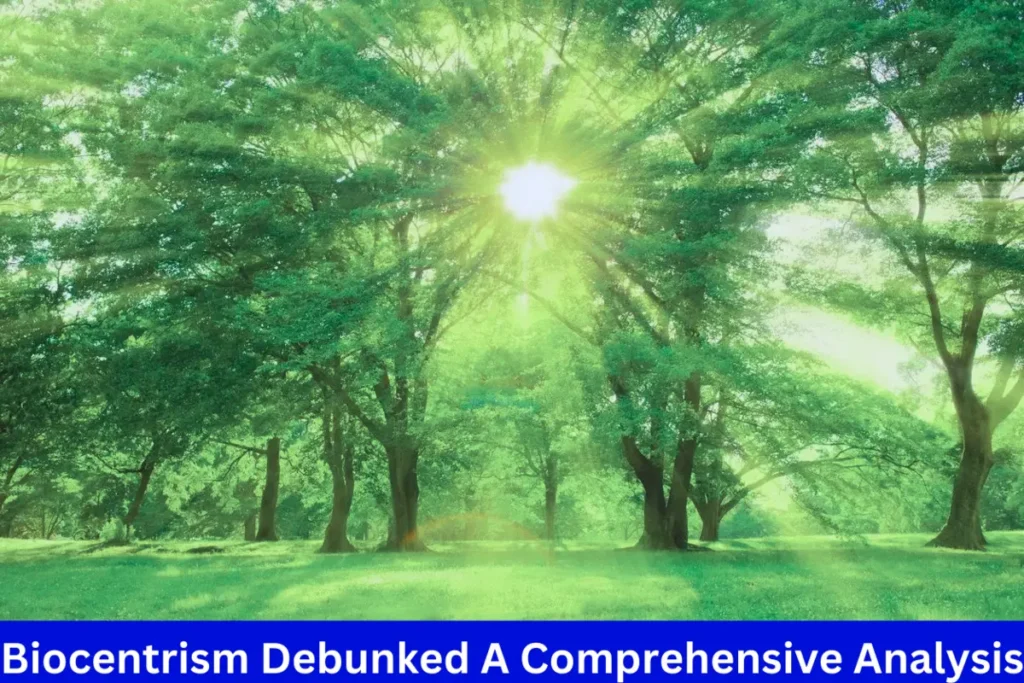Biocentrism Debunked challenges the traditional, physics-first approach to understanding the universe. It argues that our understanding of the universe is inherently linked to the presence of conscious observers, essentially implying that the universe does not exist without consciousness. This idea echoes some interpretations of quantum mechanics, particularly the observer effect, which suggests that observation can alter the outcome of quantum events.
Scientific Foundations and Critiques
One of the primary arguments against Biocentrism Debunked is its reliance on a specific interpretation of quantum mechanics. Critics argue that while the observer effect is an intriguing aspect of quantum theory, extending it to suggest that consciousness plays a fundamental role in creating the universe is a leap of logic. This critique often points to the Many-Worlds Interpretation or the Copenhagen Interpretation of quantum mechanics, neither requiring a conscious observer to collapse quantum wave functions or bring reality into existence.
Moreover, biocentrism often draws upon the Anthropic Principle, which states that the universe must be compatible with the conscious life that observes it. Critics argue that this principle is more a statement about conditions necessary for life than an argument for consciousness creating the universe. It’s suggested that life adapted to the universe, not the other way around.
Philosophical Counterarguments
Philosophically, Biocentrism Debunked can be critiqued from several angles. One argument is that it falls into a form of solipsism, the idea that only one’s mind is sure to exist. By placing consciousness at the centre of existence, biocentrism risks diminishing the objective reality of the universe, leading to a philosophical dead-end where nothing outside one’s consciousness can be proven to exist.
Another philosophical critique is that biocentrism may conflate human consciousness’s importance with the universe’s fundamental workings. This anthropocentric bias overlooks the vastness and complexity of the cosmos, which operates according to principles that do not require human observation to function.
The Role of Consciousness in Science
Debunking biocentrism does not mean dismissing the role of consciousness in scientific inquiries. Consciousness is a fascinating subject that poses significant questions about the nature of reality and our place within the universe. However, asserting that consciousness is central to the fabric of the universe is a hypothesis that extends beyond current scientific evidence.
The study of consciousness is an evolving field, and while it intersects with quantum physics in thought-provoking ways, it does not substantiate the broad claims made by Biocentrism Debunked. Research in neuroscience, psychology, and physics continues to explore these connections without jumping to conclusions about the importance of consciousness in the cosmos.
Empirical Evidence and the Scientific Method
One of the cornerstones of scientific inquiry is empirical evidence. Critics of biocentrism argue that the theory lacks empirical support that directly links consciousness to the creation or fundamental structure of the universe. While biocentrism raises exciting questions and speculative theories, the scientific method requires hypotheses to be testable and falsifiable. Until Biocentrism Debunked can propose experiments that conclusively demonstrate the universe’s dependence on consciousness, it remains a philosophical viewpoint rather than a scientific theory.
The Ongoing Debate
Biocentrism represents a fascinating intersection of science, philosophy, and metaphysics. It challenges our preconceptions about the universe and our place within it. However, the critique of Biocentrism Debunked highlights the importance of adhering to the principles of empirical evidence and testability in scientific discourse. The debate around biocentrism underscores the complexity of understanding consciousness and the universe, which requires rigorous scientific inquiry and philosophical deliberation.
The ongoing discussion about Biocentrism Debunked, consciousness, and the nature of reality is a testament to the human quest for knowledge. While biocentrism as a theory may not hold up to scientific scrutiny in its current form, the questions it raises about life, consciousness, and the cosmos are invaluable. They push the boundaries of our understanding and invite us to explore the mysteries of existence with an open mind and a critical eye.
Biocentrism Debunked Conclusion
Biocentrism Debunked involves addressing its scientific, philosophical, and empirical shortcomings. While it offers an intriguing perspective on the role of consciousness in the universe, it stretches beyond the current bounds of scientific evidence and interpretation. The discourse surrounding biocentrism enriches the dialogue between science and philosophy, highlighting the complexity of unravelling the nature of reality and our place within it. As we continue exploring these fundamental questions, applying rigorous scientific standards and maintaining a balance between speculative theory and empirical evidence remains crucial.


